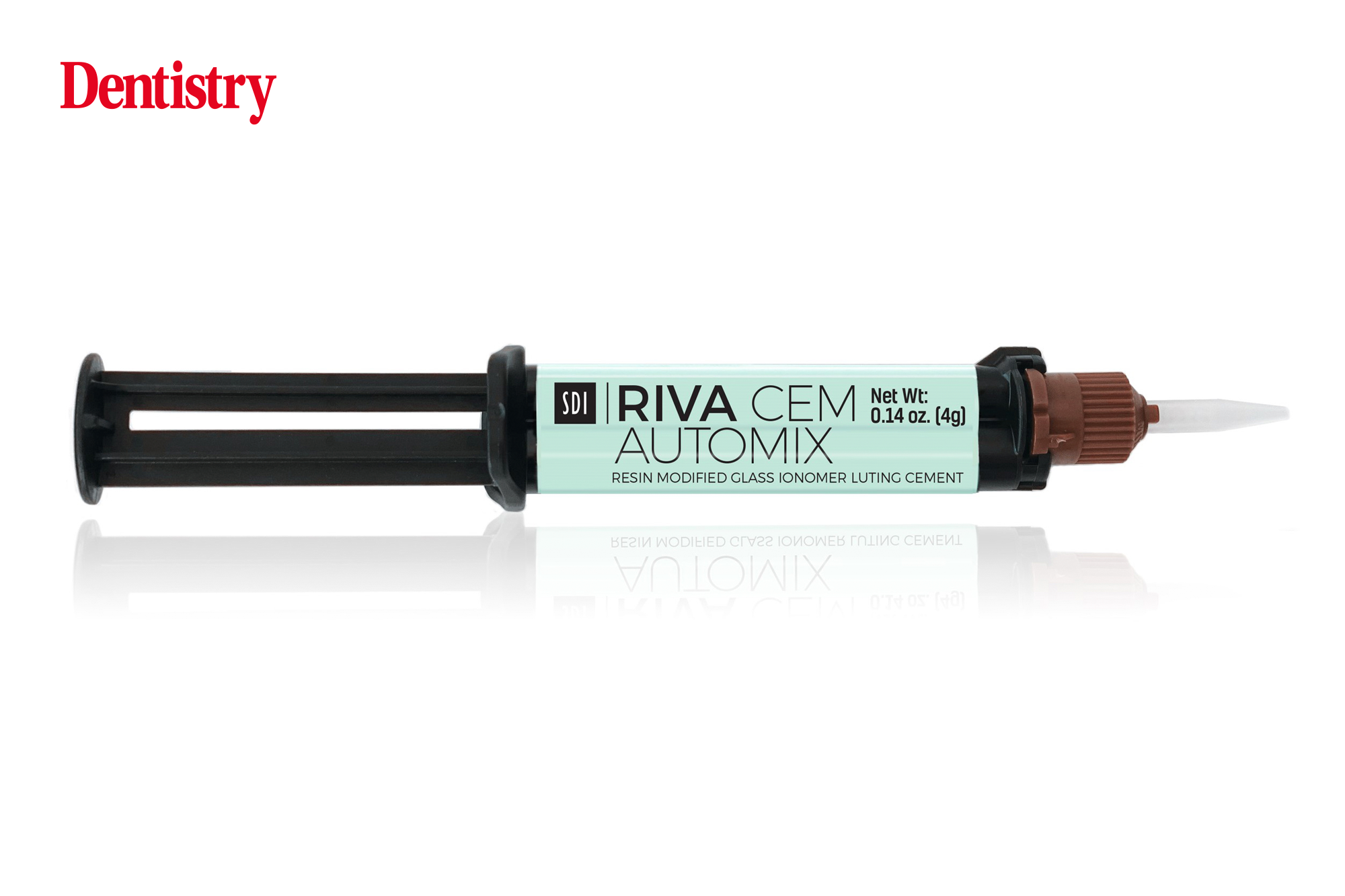
Khadija Awan looks at why the latest dental cements are easier and faster to work with compared to traditional cement systems.
Choosing dental cements was fairly straightforward back in the day. Today, however, things have become more complicated.
Clinicians face a multitude of combinations of restorative materials, luting cements and clinical situations, often making it hard to know which is best for the case in hand.
Dental cement is used primarily as a luting agent for bonding prosthetics and orthodontic appliances to teeth.
Other uses include temporary restorations, cavity lining, as a seal to prevent marginal leakage and under metallic or ceramic restorations to protect the pulp from harm.
Types of dental cement
Most definitive indirect restoration are luted using one of five types of dental cement:
- Zinc phosphate
- Zinc polycarboxylate
- Glass ionomer cement (GIC)
- Resin modified glass ionomer cement (RMGIC)
- Resin cement.
The pros and cons
Zinc phosphate, zinc polycarboxylate and GIC are tried-and-tested dental cements and when used as indicated, deliver great results for metal and metal-supported restorations.
GIC is very moisture tolerant, and due to its fluoride release, has a known remineralising effect on demineralised tooth structure. GIC can be used as a liner, a base for a direct restoration, a fissure sealant as well as a restoration.
However, the low strength and low adhesion of these cements means they are contraindicated for most ceramic-based and all composite-based restorations.
RMGIC (resin modified glass ionomer cement) has been developed to deal with the limitations of conventional GIs with higher compressive and tensile strength. RMGIC is ideal for cementation of metallic and porcelain fused to metal (PFM) restorations, including zirconia, and where moisture control is more difficult.
Resin cement
Resin cements have emerged from self-etch and total-etch technologies. The latest self-etching cements require no pre-treatment of the tooth surface, making them significantly easier and faster to work with.
seT capsules, and seT PP paste/paste syringe automix system are SDI’s top-rated self-etching, self-adhesive resin cements indicated for final cementation of metal, resin, all ceramic and ceramic based restoratives.
Utilising SDI’s proprietary ionglass filler – a unique blend of different sized reactive glass particles that harness ion-release to cross link polycarboxylic acid chains – their high fluoride release helps with remineralisation of the natural dentition and do not contain Bisphenol A (including its derivatives) or HEMA.
seT and seT PP do not require separate etching and washing and also offer the choice of five shades – Translucent, A1, A2, OA3 and Opaque White, which help to deliver outstanding aesthetics.
All-new luting cement
SDI’s Riva Cem Automix is a new resin modified glass ionomer luting cement indicated for the permanent cementation of metal and ceramic restorations including zirconia, porcelain and orthodontic bands.
The focused ion release from SDI’s ionglass technology gives Riva Cem Automix clinically higher strength, superior bond and more stable aesthetic properties.
In a 2022 study, Riva Cem Automix showed superior enamel/dentine bond strength compared to other leading cements as well as best-in-class colour stability to ensure restorations do not differ from their original shade over time.
Its high flexural strength better withstands mastication forces while increasing the longevity and durability of a cement restoration in the oral environment. This means Riva Cem Automix is the ideal choice for reliable restorations across crowns and bridges, posts, inlays, onlays, and orthodontic bands.k
Even removal of excess cement is no problem with Riva Cem Automix. Any excess material is simply light tack cured for five seconds with an LED curing light and then gently removed. Alternatively, excess cement can be removed after the self-curing phase.
The automix tip attachment is more convenient than traditional hand mixed cement systems. With more tips than any other leading cement, each tip has less waste than other cements, providing more material to treat more patients.
Find out more about SDI Riva Cem Automix. For more information on SDI seT and seT PP, visit www.sdi.com.au/en-gb/product/set-set-pp/.


